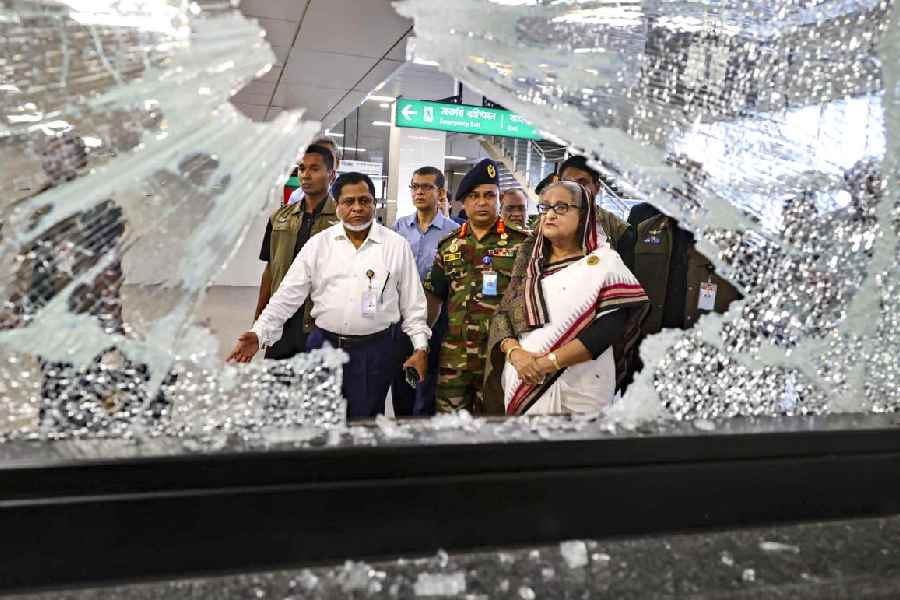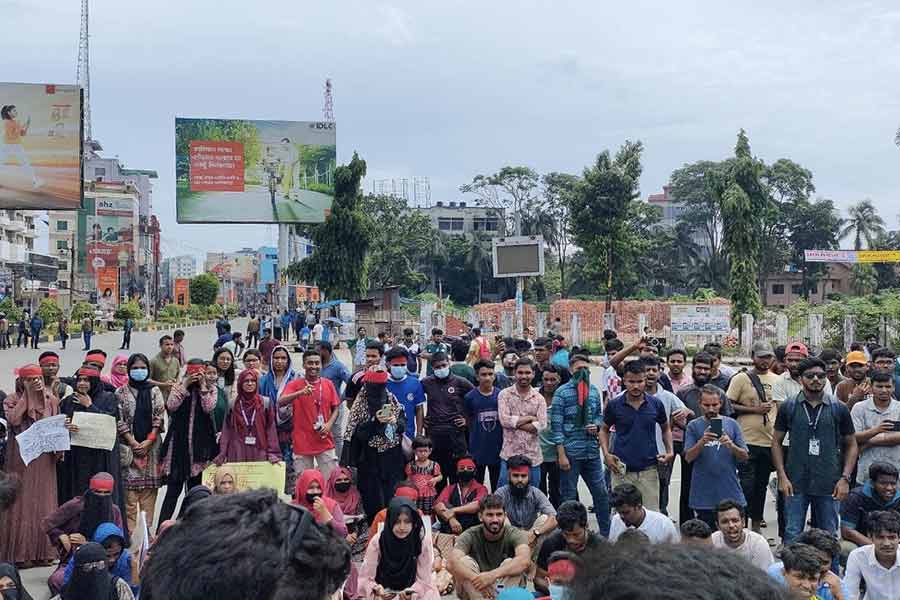Bangladesh Prime Minister Sheikh Hasina on Wednesday sought cooperation from the United Nations and other international organisations to conduct a proper investigation into the recent nationwide violence during the anti-quota agitation to punish the real culprits involved in the attacks.
Bangladesh witnessed violent clashes between the police and mostly student protesters demanding an end to a controversial quota system that reserved 30 per cent of government jobs for relatives of veterans who fought in Bangladesh's War of Independence in 1971.
"We're seeking UN and other international organisations' cooperation for a fair and proper investigation into the matter," Hasina said, adding that the people involved in the violence must be brought to justice.
"Because I know I have no negligence to this end," she was quoted as saying by the Dhaka Tribune newspaper.
Speaking at an event, she came down heavily on those who were involved in damaging public properties alongside killing many people and thus tarnishing the country's image.
"My question is who has gained what (through the mayhem)? Why was there bloodshed?" she asked.
The prime minister said they have already formed a one-member judicial probe commission with an apex court justice before raising any such demand to investigate the matter.
"We have formed the commission with a judge (of the High Court). I have given the order to include two more as manpower and enhance the periphery of the investigation," she said.
"You (countrymen) have to find out the people involved in the conspiracy to push the country backwards through fishing in troubled water by launching such an incident," she said.
The conspiracies being hatched by the collaborators of the Pakistani occupation forces pushed Bangladesh back time and again, she added.
"These are the most painful and regrettable things," she said with an emotional voice.
The prime minister said her government had earlier issued a notification cancelling the quota system.
The Bangladesh government for the first time on Monday officially acknowledged that 150 people were killed across the country during the students’ unrest over the quota system.
The government called in the army to quell protests, which started in universities and colleges earlier this month, quickly turning into a more widespread agitation against Hasina and her government, regarding job quotas.
The unrest has left several thousand people, including policemen, wounded and major government installations damaged.
The protests subsided last week after the apex Appellate Division of unitary Bangladesh’s Supreme Court on July 21 ordered a massive quota reform, keeping only seven per cent of reserve posts instead of the existing 56 per cent.
The government subsequently issued a Gazette notification in line with the order saying 93 per cent of jobs would be open to candidates on merit.
Except for the headline, this story has not been edited by The Telegraph Online staff and has been published from a syndicated feed.












